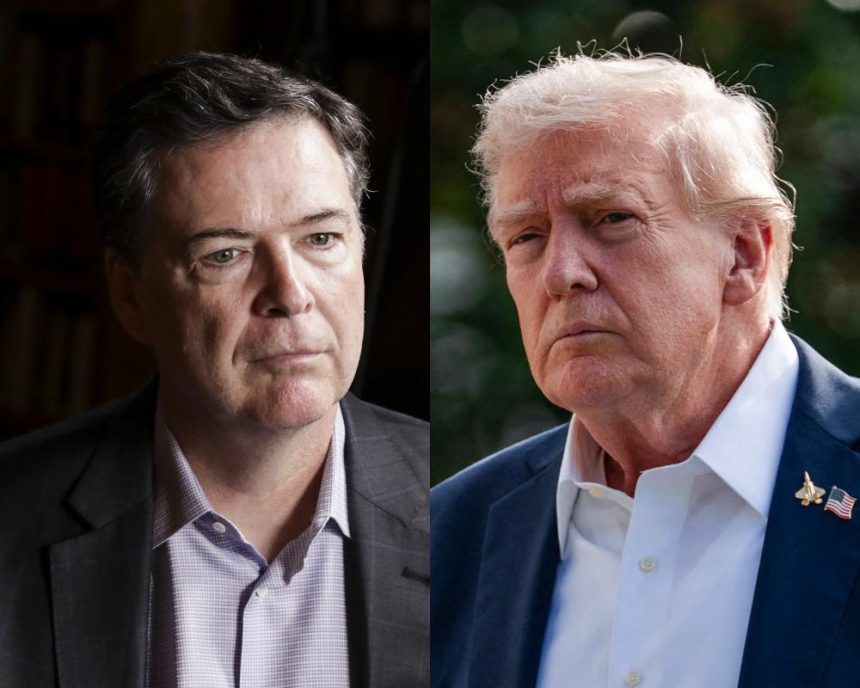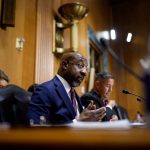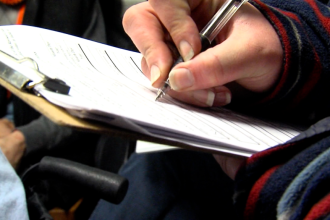The relationship between Donald Trump and James Comey has spanned a turbulent decade, beginning during the 2016 presidential campaign and continuing into Trump’s second presidency with a grand jury indicting the former FBI director on Thursday..
Comey oversaw inquiries that directly intersected with Trump’s political goals, first into Hillary Clinton’s use of a private email server, and later into possible connections between the Trump campaign and Russia. Trump alternately criticized and praised Comey’s actions during the 2016 race, but once in office their exchanges grew increasingly tense, leading up to Comey’s dismissal in May 2017.
In the years after, Comey has testified before Congress, published a memoir sharply critical of Trump and became a central figure in debates over the independence of law enforcement.
Trump, in turn, has continued to attack Comey publicly, framing him as a prime example of what he sees as political bias within federal agencies. Here is a timeline of their chaotic interactions:
October 2015
Comey assured reporters FBI investigators examining Hillary Clinton’s private email server “don’t give a rip about politics”, adding “part of doing our work well is to make sure we don’t talk about it”.
July 2016
Comey announced no charges would be filed, but said Clinton and her aides were “extremely careless” and that classified information “may well have been” exposed to “a hostile actor”. Trump’s campaign used the decision to argue the system was “rigged”.
Trump tweeted that it “is impossible for the FBI not to recommend criminal charges against Hillary Clinton”, setting the stage for a years-long conflict with Comey. He also claimed that the lack of charges showed that the system was “rigged”.
August 2016
At a rally, Trump urged appointment of a special prosecutor to “investigate Hillary Clinton’s crimes”, saying: “The justice department is required to appoint an independent special prosecutor because it has proven itself to be really, sadly, a political arm of the White House.”
October 2016
Comey informed Congress that new emails had surfaced and were under review: “The FBI has learned of the existence of emails that appear to be pertinent to the investigation.” Trump and Republicans seized on the news as proof of Clinton’s “corruption”.
November 2016
Comey said the review changed nothing: “Based on our review, we have not changed our conclusions that we expressed in July with respect to Secretary Clinton.” Trump dismissed the outcome, again calling the system “rigged”.
Days later, Trump won the presidency. Neither candidate mentioned Comey on election night.
January 2017
At a White House reception, Trump hugged Comey, joking, “He’s become more famous than me.”
March 2017
Comey said at a conference: “You’re stuck with me for about six and a half years,” signaling intent to finish his term.
Later that month, Comey publicly confirmed an FBI inquiry into “whether there was any coordination between the [Trump] campaign and Russia’s efforts”. He promised it would continue “no matter how long that takes”.
May 2017
Trump abruptly fired Comey, officially citing lost confidence and his handling of the Clinton case, though Trump had once praised Comey’s “guts”. Comey said he learned of his dismissal from watching TV while in Los Angeles.
Trump said he would have fired Comey regardless of DoJ advice and called him a “nut job” to Russian officials. He also warned: “James Comey better hope that there are no ‘tapes’ of our conversations.” A report from the New York Times later revealed that Trump told Russian officials he fired Comey to ease pressure on himself over the investigation.
June 2017
Ahead of his Senate testimony, Comey stated Trump had sought “loyalty” and asked him to “let it go” in reference to the FBI’s investigation into former national security adviser Michael Flynn a day after Flynn was fired. Under oath, he said Trump lied about the FBI being in disarray: “Those were lies, plain and simple.”
Trump denied Comey’s claims and said he was “100 percent” willing to testify under oath.
April 2018
In his book A Higher Loyalty: Truth, Lies, and Leadership, Comey wrote: “This president is unethical, and untethered to truth and institutional values. His leadership is transactional, ego driven and about personal loyalty.” He also compared Trump’s presidency with a “forest fire”.
Trump lashed out online, calling him “Slippery James Comey” and “the WORST FBI Director in history”.
December 2019
Comey admitted to being responsible for “real sloppiness” over the handling of surveillance of a Trump campaign adviser, but fiercely defended himself and the bureau against any suggestion of political bias.
Trump tweeted: “So now Comey’s admitting he was wrong. Wow, but he’s only doing so because he got caught red handed. He was actually caught a long time ago. So what are the consequences for his unlawful conduct. Could it be years in jail? Where are the apologies to me and others, Jim?”
September 2020
Senate Republicans summoned Comey to re-examine the Russia inquiry. He once again defended it, saying: “In the main, it was done by the book, it was appropriate and it was essential that it be done.”
May 2025
After Trump’s return to the White House, Comey posted a photo of seashells spelling “86 47” (a phrase often used by Trump critics at protests, with 86 being a slang term for dismissing or getting rid of someone). He later deleted it, saying he was unaware that the phrase had violent associations. The Secret Service interrogated him and weeks later surveillance teams tracked his car and phone.
September 2025
A federal grand jury indicted Comey for making a false statement and obstructing a congressional proceeding related to his 2020 testimony. Career prosecutors objected to the indictment. Mark Warner of Virginia, the top Democrat on the Senate intelligence committee, said it is the latest sign that the president is making good on his promise “to turn our justice system into a weapon for punishing and silencing his critics”.
Comey responded in a video to the indictment, declaring his innocence and saying: “We will not live on our knees, and you shouldn’t either”.
Trump wrote on Truth Social: “JUSTICE IN AMERICA!” He also added that he hopes “there will be others” who are prosecuted when interviewed Friday on the south lawn of the White House.









